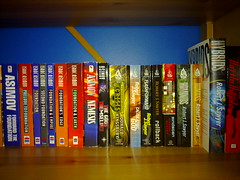You know that the times are a-changin’ when terrorists armed with paper cutters are a serious menace to the world’s largest superpower, unpaid networks of developers can build an operating system that is now used in enterprise-grade IT solutions and when strategies designed to erradicate a problem such as terrorism or poverty add more fuel to the fire. While this book is geared towards an American audience and focuses on the ramifications of this phenomenon in foreign policy, I have been thinking about what kind of lessons this can provide business.
The author introduces in this book the concept of resilience, where instead of trying to have grand monolithic strategies to anticipate every single scenario we should instead focus on having different approaches towards a problem, “gardening” our way to ride the ever-coming waves of change and take advantage of them. This idea resonates on many levels with many concepts I use as part of my daily life, which I will make a list of (and no, I’m not Chinese =P):
- One of the main lessons in aikido, which is using the forces of others to your own advantage. You don’t oppose a force with another force, you channel it so that it goes where you want to.
- Systems intelligence, where an individual accepts that life is a set of interdepentent relationships where there are feedback mechanisms that can be tweaked to one’s own advantage with huge effects due to the non-linear character of the system.
- Social media, technological convergence, creativity and other related professional interests of mine.
The interesting conclusion to which the author arrives, which I also find very appealing, is the need for empowering diverse change agents who can drive different approaches to solving a problem to work as a sort of “immunity system” for an organisation, be it a country, a company or the world.
It’s not a complicated book (in reality, I found it a little bit too light as I would have wanted a few more examples from other fields and more detail on the conceptual framework) but definitely a recommended read.
